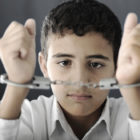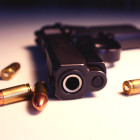
The Illinois Supreme Court has shot down a controversial practice that was the norm in the state’s juvenile courts for years, despite outcry that minors were not being treated fairly under state laws meant to protect their status as juveniles. The court found that a lawyer’s second role as a guardian ad litem—an advocate for minors in court proceedings who pledges to act in the child’s “best interest”—may have inhibited him from providing his client with a zealous defense in a sexual abuse case. Austin M.’s conviction was overturned by the court, which cited that a per se, or inherent, conflict of interest occurred when his lawyer decided to act as a guardian ad litem and declared that he was seeking the truth, “the same as the court and the same as the prosecutor.”
Some legal experts hailed the decision saying it was clear-cut under the due process clause and legal precedents in juvenile delinquency cases. “Lawyers have a duty of confidentiality, a loyalty to their client that is compromised when they wear two hats; to begin to think of [themselves] as a ‘best interest’ lawyer,” said Marsha Levick, deputy director of the Juvenile Law Center in Philadelphia. Lawyers are either appointed by the court as guardians ad litem for their juvenile clients or choose to identify themselves as such, usually when the defendant’s parents do not appear during trials.







